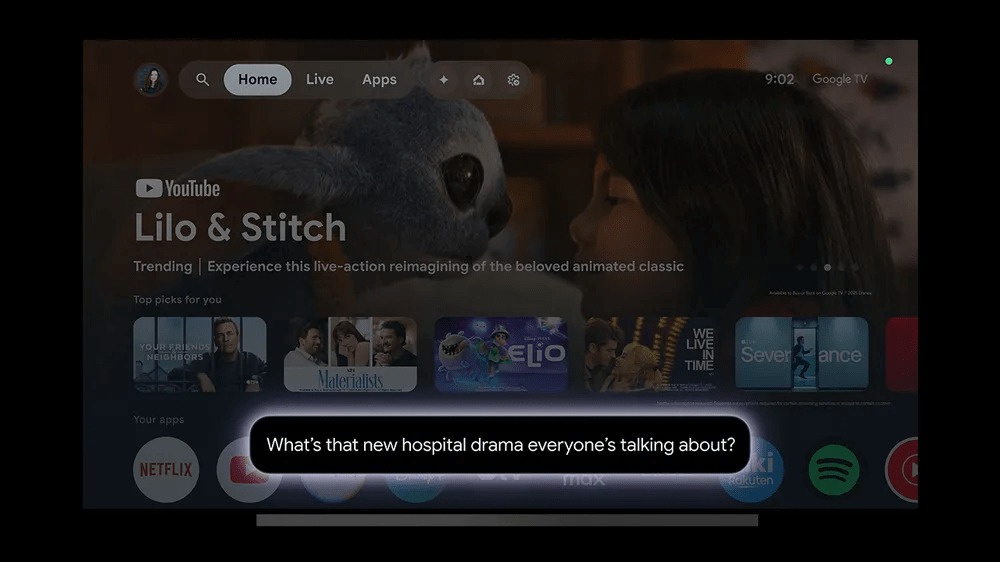Your TV’s voice assistant currently has the intelligence of a particularly dim toaster. You know the drill: carefully enunciated commands that still somehow confuse the thing, searches that return random garbage, and the growing suspicion that yelling at your remote accomplishes nothing. Google’s rolling out Gemini AI to fix this mess, starting with TCL’s QM9K series and targeting over 300 million Google TV and Android TV devices within the year.
Beyond “Play Netflix”
Natural conversation replaces robotic commands for content discovery.
This isn’t just a software update—it’s conversational AI that actually understands context. Instead of barking “FIND COMEDY MOVIES” into your remote, you can casually ask for “movies like Jurassic Park but appropriate for kids” and get relevant results. Gemini processes follow-up questions, remembers what you discussed, and can even catch you up on missed episodes with proper summaries.
The difference feels like upgrading from a flip phone to an iPhone. According to Google’s CES 2025 demonstrations, you can maintain natural dialogue with your TV rather than memorizing specific voice commands.
Your Living Room Gets a Brain Transplant
Smart home control and ambient features extend TV functionality beyond entertainment.
Gemini transforms your TV into a proper home hub. Key features include:
- Adjust lighting
- Check weather
- Control smart devices
- Generate custom artwork for ambient mode
- Deliver personalized news briefings directly on screen
- Answer general questions like “explain why volcanoes erupt to a third grader”
Your TV stops being just a content consumption device and becomes the household information center it always promised to be. This functionality works even in ambient mode, letting you access useful information without interrupting whatever’s playing.
The Rollout Reality Check
Privacy questions loom as Google positions Gemini for living room dominance.
Google’s targeting the following devices through 2025:
- Hisense U7/U8/UX models
- Walmart’s onn 4K Pro devices
- Additional TCL models
The company emphasizes on-device processing and permission controls, though specific privacy advocates have raised concerns about always-listening AI in intimate spaces like living rooms.
This represents Google’s biggest strategic play yet for living room dominance, potentially normalizing AI assistants for millions who’ve never owned an Alexa. The upgrade arrives as streaming fatigue hits peak absurdity—too many services, too much content, and discovery tools that couldn’t find water in an ocean.
Gemini might actually solve that problem, assuming you trust Google with your family’s viewing habits and casual conversations.






























